From South Korea to Iowa; a lavish life left behind to chase the American Dream
As a little girl, in Busan, South Korea, Le Wang loved pretty dresses. Her father, Hou Shiang Wang, owned an upscale restaurant on the very top floor of the posh Commodore Hotel Busan. His restaurant served elegant Korean and Chinese dishes. Le recalls the lowest level of the hotel was lined with shops and her favorite was the dress shop was filled with fancy dresses. When a particular dress caught Le’s eye, she brought her mother, Bok Shun Wang, to see the dress hoping she would buy it for her.
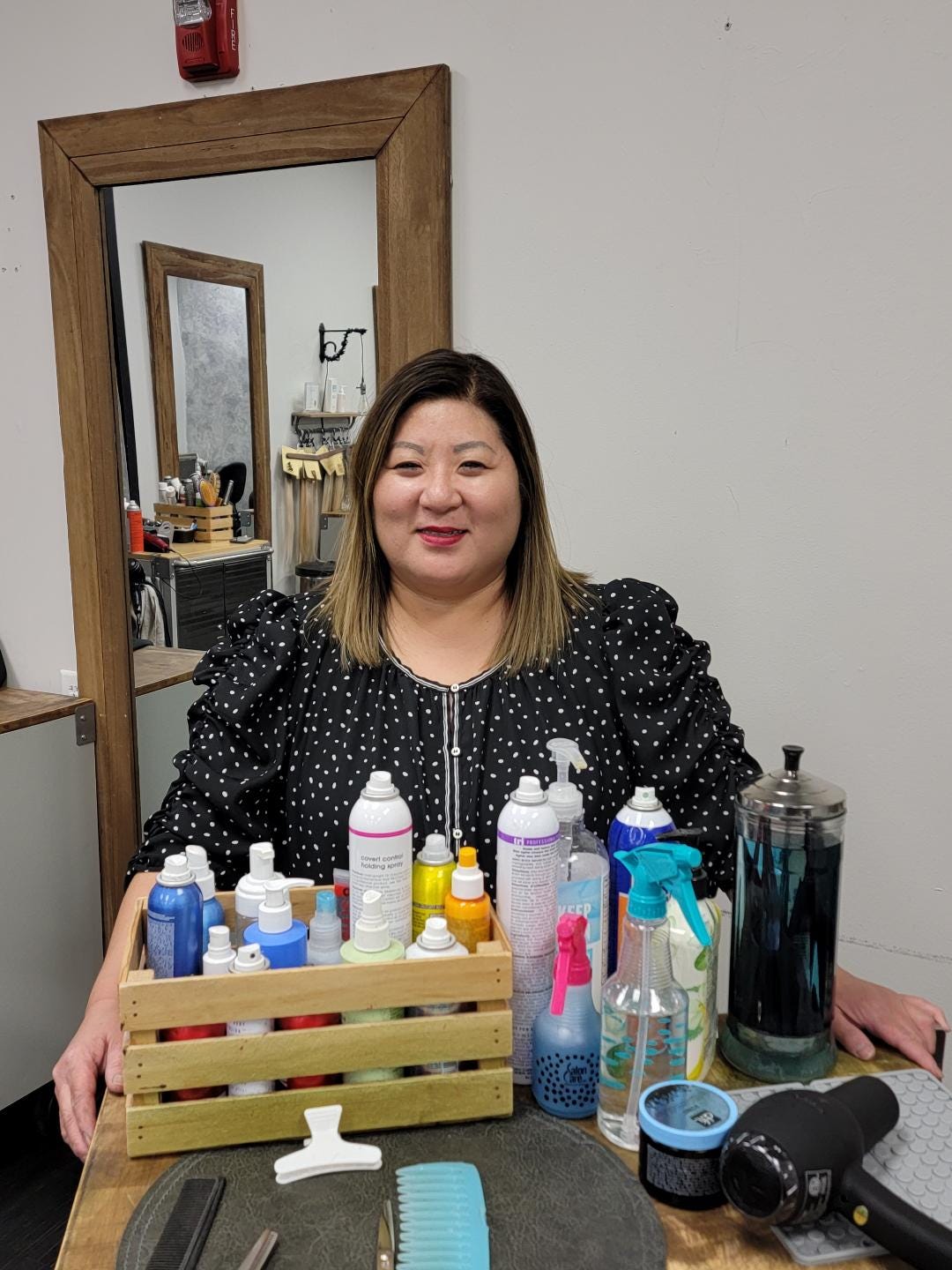
Le’s father, Hou Shiang, is of Taiwanese Chinese descent and was born in South Korea. He speaks Mandarin Chinese, Korean and Japanese. His love of cooking and strong work ethic led him to a restaurant career. Bok Shun, Le’s mother, was a loving wife and mother to three children; Shen, Le’s older sister, Le and Curt, her younger brother.
Le and her family lived an extremely comfortable life in Busan, a large port city known for mountains and beaches next to the Sea of Japan. Her father was busy running the restaurant with his wife’s help. Le and her sister were driven to a private school by a chauffeur. Their father was very traditional and only wanted his children to attend Chinese school and wear modern clothing, rather than traditional Korean fashion.
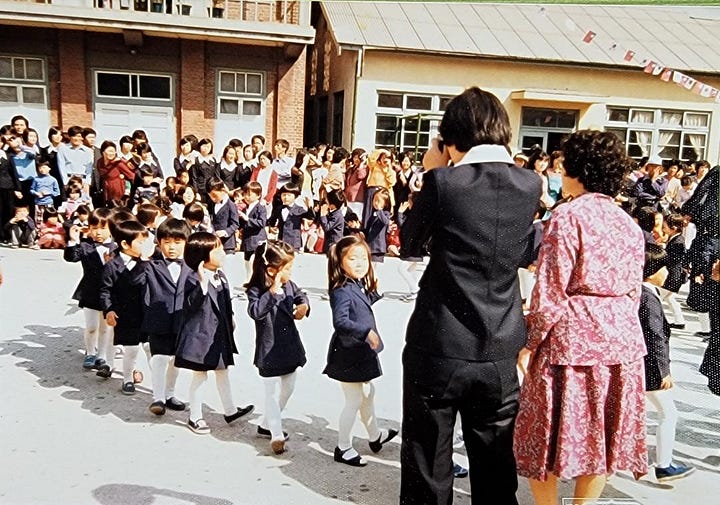

When Le was 6, her father decided to move the family 6,000 miles away to the United States. After he was granted a Green Card, Hou Shiang’s brother sponsored the family so they could make their way to the U.S. When they arrived, Le’s uncle had a job waiting for her father to be a cook at his Chinese restaurant, Peking, on Douglas Avenue in Des Moines. At the time, Le didn’t understand why her family left their lovely Korean house to live in an apartment building in Urbandale, Iowa.
In a very short time, Le’s entire world changed. Her family went from being well-to-do to working class. She was thrust into a place called Iowa and was surrounded by faces she didn’t know and a language she didn’t understand.
Le and her sister, Shen, attended elementary school in Urbandale. It was 1980 and there were only a very few students that spoke a language other than English at their school. Shen was in 6th grade and Le in 1st. The English as a Second Language teacher taught them English one-on-one.
Learning to speak and write in English took some time for Le to learn. There were no elegant calligraphy pens to write Mandarin Chinese characters in bold, black ink. There were no crisp school uniforms to wear. Le and Shen were accustomed to wearing a white collared shirt, a dark blue blazer and skirt, along with white tights and shiny black dress shoes to school.
At school in Urbandale, children were in awe of the two Asian beauties in their classes. Le remembers children wanting to touch her jet-black hair to feel its softness. She said, “They treated us like we were a piece of a diamond.”
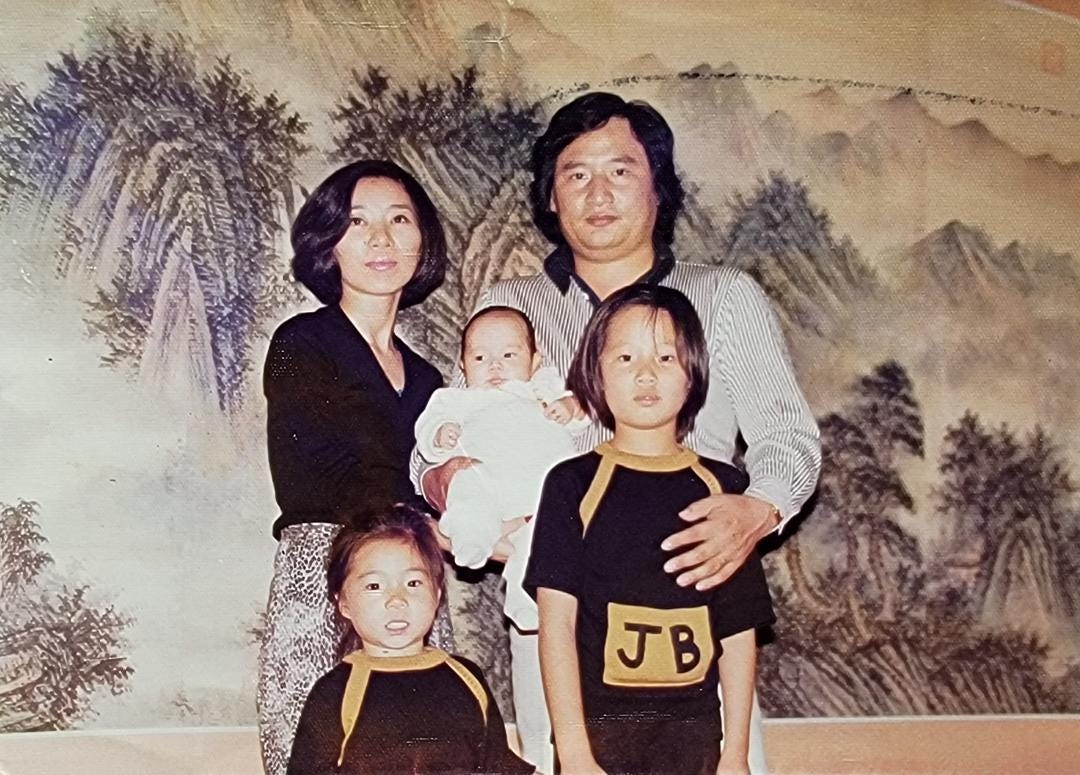
After a few years in Iowa, Le’s father made another big decision. “Men were dominant and made all the decisions,” explained Le. He chose to move the family again. This time out West to give California a shot. They made a visit to Disneyland and her dad opened a Chinese restaurant in Pomona, California. Over the next several years, he moved the family back and forth between Iowa and California three times to start new restaurants in The Golden State.
Eventually, Le’s father decided to move back to Iowa in the late 80s and opened New China on the Southside of Des Moines on SW 9th, where the current China Chef is today. On the weekends, Le’s father would showcase his noodle making skills by putting on a show at the restaurant. He demonstrated his technique to make thin, perfect noodles. He worked very long hours cooking Chinese food to make his restaurant a success. In high school, Le worked at the restaurant as a cashier and waitress and helped out in the kitchen when necessary.
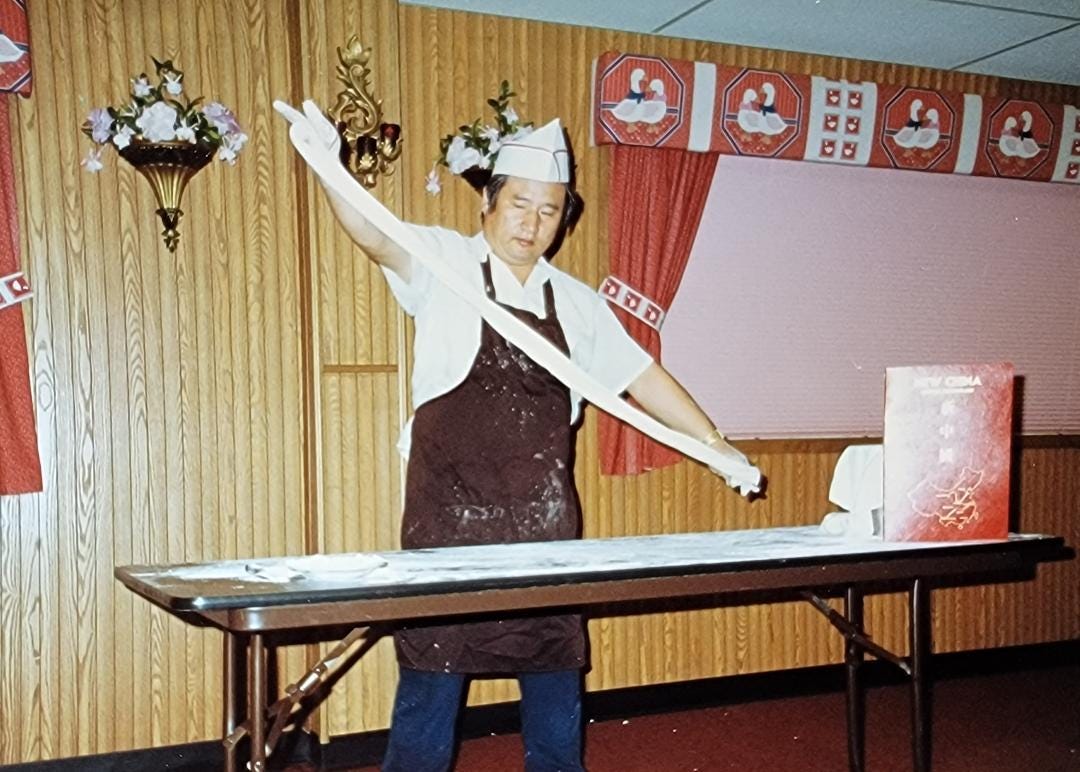
After roughly twenty years in the U.S., Le’s father, Hou Shiang, decided to sell his restaurant and return to South Korea, where he still resides today. Sadly, her mother, Bok Shun, battled ovarian cancer and passed away in 1999.
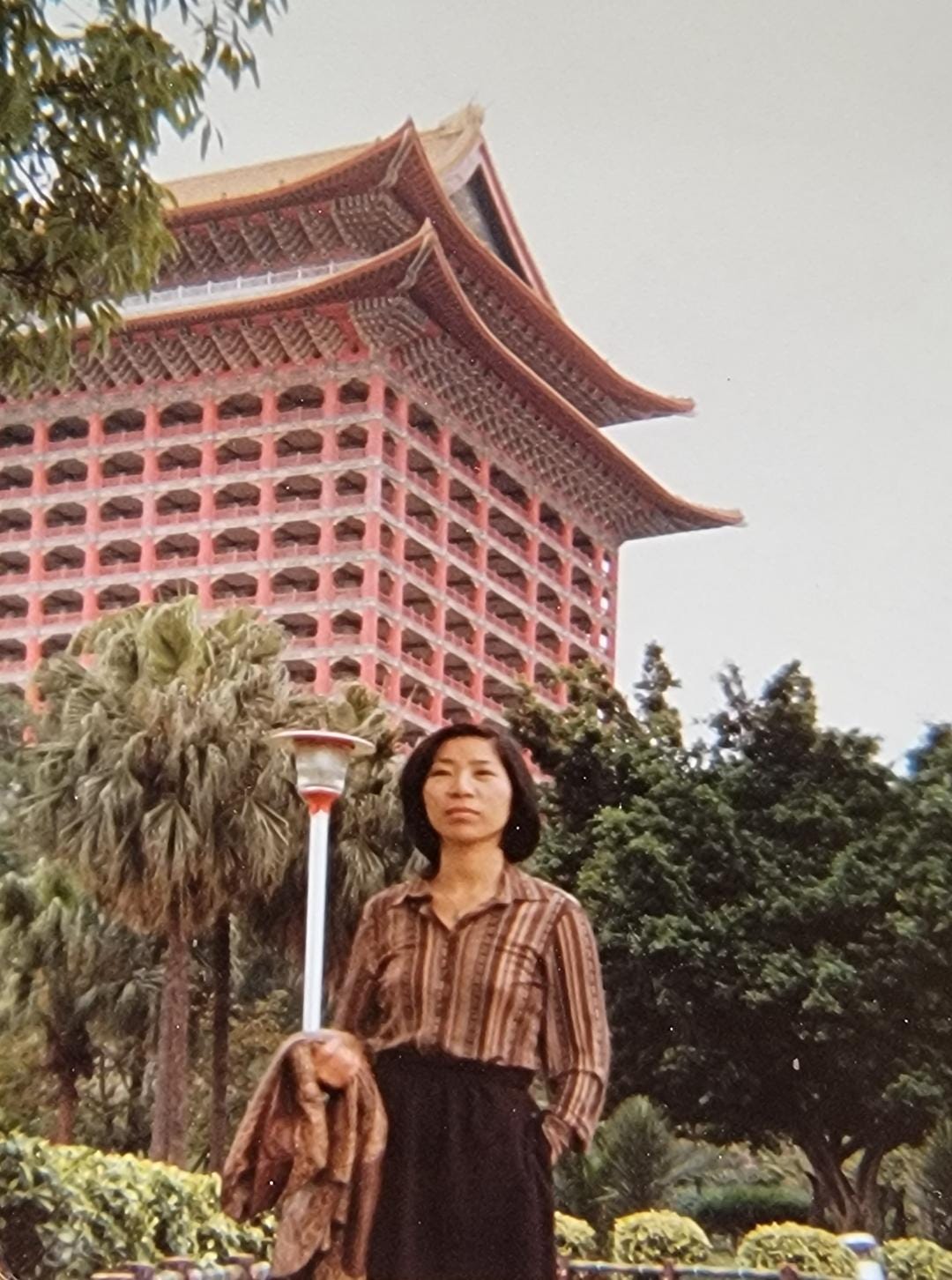
Le has returned to her homeland twice. Once in junior high and once with her sister to visit their father in 2017. During her more recent visit, she was shocked at the stifling humidity, it was even worse than August in Iowa.
K-dramas (Korean dramas) and Korean food are some of Le’s most favorite things. According to Le, the best Korean food is in Kansas City and Chicago. She travels out of state to get her fill of Korean barbecue a couple times a year.
Flashback to 1993…
Le graduated from Lincoln High School and needed to start her own life. She decided to train to be a hairstylist and attended La’ James College. Le thought, “I’m not good at math or computers, I’ll give hair a try.” After graduation, she felt confident in her skills. However, after she was hired, she felt like she didn’t know anything she needed to know to be a good hairstylist.
Her first job doing hair was at Hair & Nail Studio at Valley West Mall. “Working at the salon taught me more than beauty school,” said Le. As Le’s skills increased, so did her clientele. In the 90s, Valley West Mall was bustling with shoppers, and they often stopped in to have their hair done or to make an appointment. Le’s loyal clients have followed her to several studios including Z-Ba Salon in Clive and her current location inside Emerson Studio in West Des Moines.
Le’s eye for beauty has never faded. She enjoys chatting with her clients and making them look beautiful. She sets her own hours including weekends and after hours. She adjusts them according to her clients’ needs. Le specializes in haircuts for men, women, and children, as well as hair color, highlighting and waxing services.



